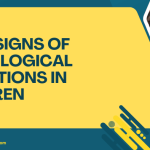Table of Contents
- Understanding Early Intervention in Pediatric Neurology
- Benefit 1: Enhanced Developmental Outcomes
- Benefit 2: Improved Family Support and Education
- Benefit 3: Reduced Need for Intensive Services
- Benefit 4: Increased Access to Resources
- Benefit 5: Better Coordination of Care
- FAQs about Early Intervention in Pediatric Neurology
- Conclusion
Understanding Early Intervention in Pediatric Neurology
Early intervention refers to the timely support and services provided to children with, or at risk for, developmental delays or disabilities. In pediatric neurology, this can encompass conditions like cerebral palsy, epilepsy, and neurogenetic disorders, among others. The goal is to identify and address challenges as early as possible to promote optimal development and functioning.
Recent studies (2024) emphasize that the earlier children receive interventions, the better their long-term outcomes. This aligns with findings from the Top 5 Essential Insights on Neuro Care, which highlight the importance of proactive care in neurological health.
Let’s dive into the top five benefits of early intervention in pediatric neurology.
Benefit 1: Enhanced Developmental Outcomes
One of the most significant benefits of early intervention is the improvement in developmental outcomes. Studies indicate that children who receive timely interventions exhibit better cognitive, motor, and language skills compared to those who do not.
Key Points:
- Critical Development Window: The early years of a child’s life are crucial for brain development. Interventions during this period can capitalize on neuroplasticity, where the brain forms new connections and pathways.
- Individualized Strategies: Early intervention services are tailored to each child’s unique needs, allowing for personalized strategies that address specific challenges.
Table: Developmental Milestones for Children
Age (Months) Typical Milestones Early Intervention Impact 6 Responds to name Improved social skills 12 Says first words Enhanced language development 24 Combines words Stronger communication skills 36 Engages in pretend play Better cognitive flexibility
For more information on developmental milestones, visit the CDC’s developmental milestones page.
Benefit 2: Improved Family Support and Education
Navigating a child’s neurological condition can be overwhelming for families. Early intervention not only focuses on the child but also provides essential support to families.
Key Points:
- Educational Resources: Families receive guidance on managing their child’s condition, access to local resources, and tools to foster growth at home.
- Support Networks: Early intervention programs often connect families with other parents facing similar challenges, fostering community support and shared experiences.
By empowering families with knowledge and resources, early intervention creates a more robust support system, which is crucial for both the child’s and the family’s well-being.
Benefit 3: Reduced Need for Intensive Services
Research shows that children who receive early intervention are less likely to require intensive therapeutic services later on.
Key Points:
- Preventative Approach: By addressing developmental delays early, families can avoid more costly and intensive therapies down the line.
- Long-Term Cost Savings: Investing in early intervention can lead to significant cost savings in healthcare and educational services over time.
This proactive approach not only benefits the child but also alleviates stress on families and the healthcare system. For further insights, see the Top 5 Benefits of Regular Neuro Check-Ups for Your Health.
Benefit 4: Increased Access to Resources
Early intervention programs often open doors to a wealth of resources that families might not be aware of.
Key Points:
- Comprehensive Care: Families have access to a variety of specialists, including occupational therapists, speech therapists, and neurologists, all working together.
- Financial Assistance: Many early intervention programs provide resources for financial assistance, helping families manage the costs associated with therapies and treatments.
Having these resources readily available can significantly ease the burden on families, ensuring they have the support they need throughout their child’s development. For more on how to navigate these resources, check out Top 5 Tips for Choosing the Right Neurologist.
Benefit 5: Better Coordination of Care
Effective early intervention facilitates better coordination among healthcare providers, ensuring that all aspects of a child’s health and development are addressed.
Key Points:
- Multidisciplinary Teams: Early intervention often involves a team of professionals who collaborate to create a comprehensive care plan tailored to the child’s needs.
- Streamlined Communication: This team approach enhances communication among providers, which is crucial for monitoring progress and adjusting interventions as needed.
When care is well-coordinated, families can feel more confident that their child is receiving the best possible support. For further reading on managing complex care, consider Top 5 Ways Primary Physicians Enhance Neuro Care.
FAQs about Early Intervention in Pediatric Neurology
Q: What age should my child start early intervention?
A: Ideally, early intervention should begin as soon as developmental delays are identified, often before the age of three.
Q: How can I access early intervention services?
A: You can start by contacting your pediatrician, who can guide you on local early intervention programs.
Q: Are early intervention services covered by insurance?
A: Many insurance plans cover early intervention services, but it’s essential to check with your provider for specifics.
Q: What types of professionals are involved in early intervention?
A: Early intervention teams often include pediatricians, neurologists, occupational therapists, speech therapists, and psychologists.
Conclusion
Early intervention in pediatric neurology offers profound benefits that can significantly influence a child’s developmental trajectory. From enhancing developmental outcomes to providing vital family support, the advantages are extensive and impactful. If you suspect your child may benefit from early intervention, don’t hesitate to reach out to a healthcare provider. Early action can lead to brighter futures and more robust support systems for both children and their families.
For more detailed information on early intervention, check out resources from the American Academy of Pediatrics and the National Early Childhood Technical Assistance Center.






